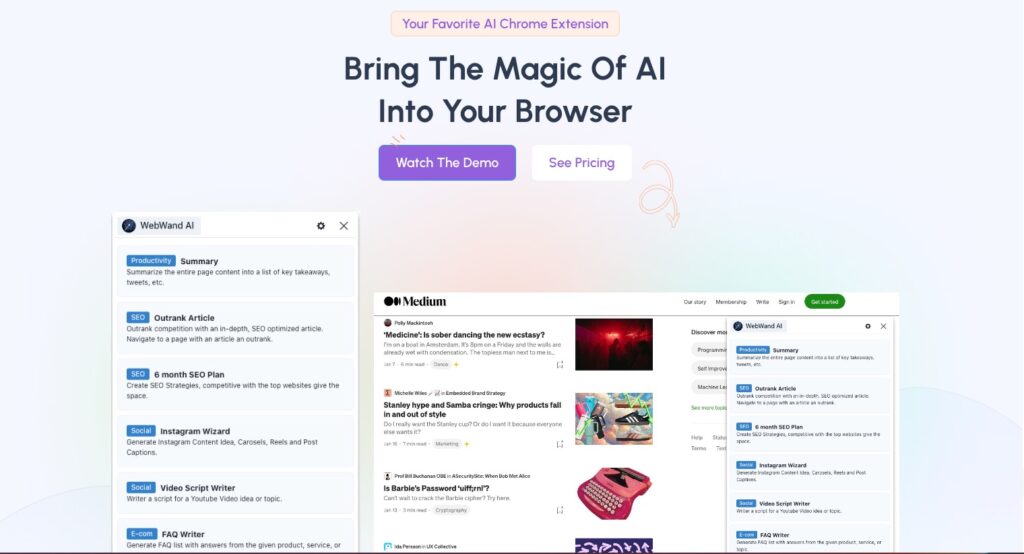Imagine a world where virtual influencers are as popular as human influencers, engaging with audiences and promoting products on social media platforms. Well, welcome to 2023, where the rise of AI influencers is revolutionizing the influencer marketing landscape. In this blog post, we will delve into the fascinating world of AI influencers, exploring their evolution, the technology behind them, and the impact they have on various industries.
From the inception of the first virtual influencer to the most popular virtual influencers today, we will discuss their achievements, areas of expertise, and notable collaborations. We will also examine the ethical considerations and potential pitfalls associated with using AI influencers in marketing initiatives. So buckle up and join us on this eye-opening journey into the world of AI influencers and their ever-growing influence in 2023.
Short Summary
- AI influencers are gaining popularity and collaborating with renowned brands, utilizing sophisticated technologies such as machine learning to generate customized content.
- Top AI Influencers in 2023 include Abhishek Thakur, Andrej Karpathy and Kunal Jain while virtual fashion icons have had a significant impact on the fashion industry.
- Brands should use AI tools to identify the right influencer for their campaigns while building authentic relationships and addressing ethical considerations.
The Rise of AI Influencers

AI influencers, or virtual entities created through artificial intelligence technology, have garnered considerable attention from audiences worldwide. They are becoming popular virtual influencers on various social media platforms, promoting products and services for brands. The engagement rates of virtual influencers are nearly three times higher than their human counterparts, making them an attractive alternative for brands to consider.
The most prevalent countries for virtual influencers are Japan, South Korea, and China, where some of the most popular virtual influencers have gained significant followings. Research indicates that over 60% of influencer campaigns are looking to incorporate AI or machine learning, which shows the growing popularity of the most popular virtual influencer.
AI influencers are not only making waves in the influencer space, but also playing a crucial role in the field of artificial intelligence. They are the trendsetters and opinion leaders, keeping abreast of the latest AI trends, breakthroughs, and technologies. Their insights and suggestions are invaluable and can have a major impact on the future of AI, including the practices of AI companies. Furthermore, they facilitate connections between professionals, researchers, and organizations, creating a collaborative atmosphere which encourages innovation and advances AI technologies.
The Evolution of AI Influencers
The inception of virtual influencers dates back to 2016 with the creation of Lil Miquela, a computer-generated character designed to resemble a real person and maintain an active presence on social media. Since then, AI influencers have evolved, managing their physical appearance, conduct, partnerships, and revenue from brand collaborations.
Virtual influencers have expanded their reach beyond social media platforms like Twitch, YouTube, and Instagram, where they initially gained popularity. Today, they are officially registered creators on platforms like Spotify, and some have even collaborated with renowned brands such as Prada, Calvin Klein, and Samsung.
Monetizing their platforms through brand deals, AI influencers have come a long way since their inception, proving that they are here to stay in the influencer space.
How AI Influencers Differ from Human Influencers
AI influencers contrast human influencers in terms of content creation, audience engagement, and authenticity. They are operated by algorithms and machine learning, enabling them to generate content continuously and interact with their audience in a timely manner. This rapid content generation allows AI influencers to increase their following at a much faster pace compared to human influencers.
One key distinction between AI influencers and V-Tubers is the technology behind them. While AI influencers rely on machine learning and algorithms, V-Tubers are operated by human creators utilizing motion capture technology and voice modulation. This difference in technology results in varying levels of content creation capabilities and engagement with audiences, setting AI influencers apart from their human counterparts.
The Technology Behind AI Influencers

AI influencers leverage advanced technologies like machine learning, natural language processing, and computer vision to create tailored content and interact with users on social media platforms. These technologies enable AI influencers to analyze data, generate personalized content, and provide lifelike imagery that captivates their audience.
As a result, they can establish themselves as influential figures in their respective industries, driving innovation and shaping the direction of AI research, applications, and practices.
Machine Learning and Content Generation
Machine learning is a branch of artificial intelligence that utilizes data and algorithms to train models for making predictions or decisions. When applied to AI influencers, machine learning allows them to process vast amounts of data and generate customized content for their audience.
Machine learning algorithms use data on consumer behavior and preferences to inform their decisions. This helps AI influencers create content that is tailored to the interests and needs of their followers. This personalized approach enables AI influencers to establish a strong connection with their audience, fostering engagement and driving the success of their marketing campaigns.
Natural Language Processing and Audience Engagement

Natural language processing (NLP) is a subfield of artificial intelligence that enables computers to interpret, manipulate, and comprehend human language. NLP provides AI influencers with the ability to comprehend and interact with users on social media platforms proficiently.
By understanding human language and employing advanced algorithms, AI influencers can engage with their audience in a more authentic and personalized manner. This, in turn, allows them to build a loyal following and increase their overall engagement rates, making them an attractive option for brands looking to leverage influencer marketing.
Computer Vision and Realistic Imagery
Computer vision is a field of artificial intelligence that enables computers to interpret and understand visual data from images, videos, and other inputs. It involves replicating aspects of the human vision system and leveraging algorithms and mathematical models to analyze and interpret visual data.
When applied to AI influencers, computer vision can generate lifelike images and videos by utilizing algorithms to identify and recognize objects, faces, and other features in images and videos. Additionally, it can be utilized to generate realistic animations and 3D models, allowing AI influencers to produce more engaging and visually appealing content that resonates with their audience.
However, it’s essential to address the cost, complexity, and ethical considerations that come with employing computer vision technology for AI influencers.
Top AI Influencers Making Waves in 2023

In 2023, notable AI influencers such as Abhishek Thakur, Andrej Karpathy, Kunal Jain, Andrew Ng, Demis Hassabis, Shemmy Majewski, Allie K. Miller, Fei-Fei Li, Sudalai Rajkumar, Hilary Mason, and Bernard Marr are widely recognized for their accomplishments and influence in their respective fields. Many of them hold positions such as principal data scientist in their organizations, driving innovation and shaping the future of AI research, applications, and industry practices.
These influencers have made a significant impact on the development of AI, from research to applications.
Virtual Fashion Icons
Virtual fashion icons are AI influencers who have had a considerable impact on fashion brands and the fashion industry as a whole. These virtual influencers have worked with esteemed fashion brands like Prada, Dior, and Calvin Klein, showcasing their innovative collaborations and the potential of AI-driven influencer marketing.
Virtual models like Imma, Japan’s first virtual robot model, have also made their mark in the fashion industry. By creating eye-catching, stylized appearances and collaborating with top fashion brands, these virtual fashion icons are pushing the boundaries of what is possible in the world of fashion and influencing the industry’s future trajectory.
AI Innovators in Research and Development
AI influencers in research and development drive innovation in AI research, applications, and industry practices. These influencers, such as Geoffrey Hinton for his deep learning research, Kate Crawford for her analysis of the social implications of AI and machine learning, Yoshua Bengio for his deep learning and natural language processing studies, and Fei-Fei Li for her computer vision work, are at the forefront of AI advancements.
Their accomplishments, expertise, and insights carry significant weight in the AI community, shaping the direction of AI research and development. By fostering connections between professionals, researchers, and organizations, these AI innovators contribute to a collaborative environment that encourages innovation and advances AI technologies.
Pioneers in AI Ethics and Social Impact
Pioneers in AI ethics and social impact, such as Geoffrey Hinton, Kate Crawford, Yoshua Bengio, and Fei-Fei Li, raise awareness about the ethical considerations, biases, and potential societal implications of artificial intelligence. They advocate for ethical AI and emphasize fairness, accountability, and transparency in AI systems, ensuring that the technology is developed and implemented responsibly.
Their work in AI ethics and social impact highlights the importance of addressing potential ethical concerns and controversies when working with AI influencers. By raising awareness and fostering discussions about these issues, they contribute to the development of a more responsible and inclusive AI ecosystem.
Brands Embracing AI Influencers

Companies are increasingly leveraging AI influencers for marketing campaigns, brand promotion, and audience engagement. Brands such as Calvin Klein, Prada, Samsung, and Balmain have all had partnerships with AI influencers, showcasing the potential for AI-driven influencer marketing.
As AI influencers continue to gain popularity and demonstrate their effectiveness in engaging with audiences, more brands are expected to embrace this innovative approach to influencer marketing.
Success Stories and Case Studies
AI influencers are still in the early stages of adoption, yet some success stories demonstrate the potential of this industry. Prada, Versace, Red Bull and Tinder are among the brands who have embraced AI influencers in their campaigns. Such activations have proven to be a great success for many businesses. AI influencers are creating new opportunities for brands, as AI algorithms can identify influencers who authentically connect with their target audience, thus ensuring their campaigns are effective.
Notable collaborations between AI influencers and brands include Lil Miquela’s partnership with beauty brand NARS, and Shudu’s collaboration with luxury fashion house Balmain. These success stories illustrate how AI influencers can effectively promote products and services, capturing the attention of audiences and driving the success of marketing campaigns.
Challenges and Controversies
Despite the potential benefits of AI influencers, there are ethical concerns and authenticity issues that must be addressed. Potential for bias or manipulation, promotion of unrealistic beauty standards, and a lack of transparency regarding the use of AI technology are among the ethical concerns associated with the use of AI influencers.
Levi’s recent investment in AI models as an additional measure to diversify their representation has been perceived as a step backward in terms of diversity and representation. It has also been suggested that this serves as a way for Levi’s to avoid paying human models.
As a result, it is essential for brands to carefully consider the potential drawbacks and ethical considerations when working with AI influencers in marketing initiatives.
Tips for Engaging with AI Influencers
In this section, we will offer guidance on how to effectively collaborate with AI influencers, maximize their potential, and navigate the unique challenges they present. From finding the right AI influencer for your brand to building authentic relationships and addressing ethical considerations, these tips will help you make the most of your AI influencer collaborations.
Finding the right AI influencer for your brand is key. Consider their audience, their content.
Finding the Right AI Influencer for Your Brand

Identifying AI influencers that align with your brand’s values, target audience, and marketing objectives is crucial for a successful collaboration. AI tools, such as Meltwater’s social influencer marketing platform and IMAI’s discovery system, can be employed to identify potential influencers based on their engagement rates and relevance to your brand.
When selecting AI influencers, it is important to consider their audience, interests, and preferences, as well as their ability to generate tailored content for your target audience. By carefully selecting influencers that resonate with your brand’s values and objectives, you can ensure a more effective and successful influencer marketing campaign.
Building Authentic Relationships
Fostering genuine connections between AI influencers and their followers is essential for a successful influencer marketing campaign. To build authentic relationships with AI influencers, it is important to regard them as partners, grant them creative autonomy, and demonstrate that you value what they value.
Involving AI influencers in the concept development process and requesting their feedback can also help establish a long-term relationship. Additionally, transparency about the synthetic nature of AI influencers is crucial for fostering trust and maintaining authenticity with their audience.
Navigating Ethical Considerations
Addressing ethical concerns and controversies when working with AI influencers is crucial for a responsible and successful marketing campaign. To ensure ethical considerations are addressed, brands and influencers should be transparent about any potential risks or side effects of promoted products or services, disclose any conflicts of interest or relationships that may influence content, and uphold the same ethical standards as would be expected of human influencers.
By being mindful of the potential pitfalls and ethical considerations associated with AI influencers, brands can effectively navigate these challenges and create a more responsible and inclusive influencer marketing ecosystem.
Summary
In conclusion, AI influencers are revolutionizing the influencer marketing landscape, captivating audiences worldwide, and pushing the boundaries of what is possible in various industries. As they continue to grow in popularity and demonstrate their effectiveness in engaging with audiences, more brands are expected to embrace this innovative approach to influencer marketing.
By understanding the technology behind AI influencers, recognizing their potential benefits and drawbacks, and implementing strategies to foster authentic relationships and navigate ethical considerations, brands can effectively leverage AI influencers for a successful marketing campaign. The future of influencer marketing is here, and it is powered by AI.
Frequently Asked Questions
What are AI influencers?
AI Influencers are virtual personas programmed to look and act like real people, allowing them to interact with social media users just like human influencers.
They can be used to promote products, services, and ideas, and can even be used to create content and engage with followers. AI Influencers are becoming increasingly popular as they offer a cost-effective way to reach a large audience.
What brands are AI influencers?
Brands such as Nars, Prada, LVMH and Yoox have utilized virtual influencers to reach a wider audience.
Puma created Maya, a popular virtual influencer for the South East Asia region.
Who is the AI girlfriend for $1 a minute?
Caryn Marjorie, a 23-year-old Snapchat influencer, has created an AI doppelgänger of herself named CarynAI that engages in erotic pillow talk for $1 a minute. The bot provides a virtual girlfriend experience with its voice and personality similar to Marjorie’s.
CarynAI is a unique example of how AI technology is being used to create a personalized experience for customers. It is also a testament to the power of influencers to create innovative products and services. With its realistic voice and personality, CarynAI is sure to be a hit with customers looking for a product.
How do influencers use AI?
Influencers are utilizing AI tools to reach their audiences, generate content, and connect with brands. AI is still in its early stages, but can help creators produce images, write text, and come up with catchy slogans, allowing for greater efficiency and productivity.
AI tools can be used to create content quickly and easily, saving time and money. They can also help influencers better understand their audiences and tailor their content to their needs. AI.
How do AI influencers differ from human influencers?
AI influencers are different from human influencers due to their ability to generate content continuously, interact quickly with their audience, and lack of authenticity.
They are able to create content at a much faster rate than humans, and can respond to their audience in real-time. This allows them to build relationships with their followers quickly and efficiently. Additionally, AI influencers lack authenticity.



